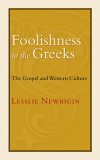Review: One-to-One Bible Reading: A Simple Guide for Every Christian
 One-to-One Bible Reading: A Simple Guide for Every Christian by David R. Helm
One-to-One Bible Reading: A Simple Guide for Every Christian by David R. Helm
My rating: 4 of 5 stars
When we think of evangelism and discipleship, we tend to think of resources. we want books and helps to guide us. This is partly due to inexperience and partly due to lack of confidence. It may also come from fear of misguiding another in spiritual matters. If we are not careful, these can paralyze us so we end up doing nothing.
The suggestion in this book is not against the use of resources, but rather to recommend we use the best resource, the Bible. Helm lays out simple and helpful ways for us to evangelize an unbeliever and disciple a younger Christian through meeting and reading the Bible together. If we think about different books in the Bible, who they were written to, and why, we already have custom resources for different types of people. So the Gospels and even Acts are books that can be used with unbelievers. The epistles in the New Testament were mainly written to younger Christians to ground them in the truth and equip them for perseverance and service. It makes sense these books can be used this way.
Helm also gives us some examples where he breaks down some books to read this way. For instance, he gives us two approaches to the Gospel of Mark. If you meet with a person once a week, you could go through Mark with them in 8 weeks, or 20 weeks for a more in-depth reading. He does the same for some other books as well. He also gives two different methods, the Swedish and COMA methods, for how to do it.
Obviously, a person can use some, all, or none of these suggestions, but they are helpful at least to show us how it could be done. If you think about this in the work of the church, this would also pair well with verse-by-verse preaching through books. So a pastor could preach through a book and put together a similar guide to use in one-to-one Bible reading with their neighbors, family, friends, co-workers, etc. In this way, a pastor could more fully equip his people for the work of ministering.
I am thankful to have read this book. I want to pray through and think through how I can implement this in my own ministry. Evangelizing or discipling can be a daunting task to Christians, but the simplicity of this method could help us past such fears.
Apologetics and Evangelism

If You Could Ask God One Question is a practical and helpful book. It is outreach oriented and apologetically engaged without the high technical aspect of some apologetics works. Technical works certainly have their place, but this book fills in an under-supplied area.
This could be given to a lost friend or coworker without worrying that it would be inaccessible or irrelevant to them. It is not a stand-alone evangelistic book but could probably open a door for further conversation. It could help to break the ice with someone you have been wanting to witness to but can never seem to turn the conversation to weightier matters.
The book deals with many common questions people have in relation to God and the Bible. The answers are not exhaustive but are well done. This helps to keep the book concise and more likely to be read. The style is conversational and interesting. Christians would be benefited by reading it to think about these questions and their answers.
Statements on the Gospel
I could not count the times that I have been reading a passage that I have read many times before, when the text just grabs me! This happened recently while I was reading Paul’s account of his conversion and calling to preach the gospel in Acts 26. Jesus appeared to him and said, “For I have appeared unto thee for this purpose, to make thee a minister and a witness both of these things which thou hast seen, and of those things in the which I will appear unto thee” (Acts 26:16). Before we move to the primary statement in verse 18, let us consider a couple of things from this verse.
Saul was brought to a confrontation with the Lord of Glory, Whom he previously did not own. Saul was made to bow, submit to the sovereign lordship of Jesus Christ. Note that in exercise of His kingly authority (all authority in heaven and in earth), Jesus makes demands of Saul—“I have appeared unto thee for this purpose.” He says that Saul is not free to do as he pleases, rather is under the yoke of Christ. The message of salvation that Saul received was not a message of a personal escape from trouble and trial. It was not a liberation of the flesh to serve self without guilt. It was a message that meant owning the dominion of the Most High and serving Him fervently with his whole person. Paul would later exhort the Romans to offer themselves as living sacrifices, consecrating their whole selves to God.
Jesus called Saul to be a minister and a witness. He was to preach the gospel, evangelize, do missionary work. The words of Jesus constrained him in this work—“To open their eyes, and to turn them from darkness to light, and from the power of Satan unto God, that they may receive forgiveness of sins, and inheritance among them which are sanctified by faith that is in me” (Acts 26:18). The message he had received was the message he took to the world. He saw his work as to turn men from the darkness of their idolatries, no matter how sophisticated, and reprove them of their false loyalties. He declared to them the true and living God, Creator of heaven and earth, and men must “turn” to Him “that they may receive forgiveness of sins, and inheritance. . .”
This gospel message seems lost to many in our day. Salvation is turned into a personal escape and reward. It is counted among myriad remedies for the various problems of modern man. A gospel of decision and choice is foisted upon eager “seekers”. Modern men have tried a number of things to help them and so they will give religion its fair chance. The result of this is individualistic, selfish lives that do not bow to the lordship of Jesus Christ. A religion that gets them where they want to go.
Solomon said, “Where the word of a king is, there is power” (Ecclesiastes 8:4). The gospel is none other than the word of the King, and not surprisingly, it has power. The word for power in Ecclesiastes 8:4 is a word that means authority or bearing rule. The king has authority and speaks with power. The gospel is the word of the King that speaks with power, authority and He is to be obeyed, reverenced, and served.

Along this line, I read another great statement on the gospel the other day.
The church is the bearer to all the nations a gospel that announces the kingdom, the reign, and the sovereignty of God. It calls men and women to repent of their false loyalty to other powers, to become believers in the one true sovereignty, and so to become corporately a sign, instrument, and foretaste of that sovereignty of the one true and living God over all nature, all nations, and all human lives. It is not meant to call men and women out of the world into a safe religious enclave but to call them out in order to send them back as agents of God’s kingship.
(Leslie Newbigin, Foolishness to the Greeks—The Gospel and Western Culture, p. 124).







